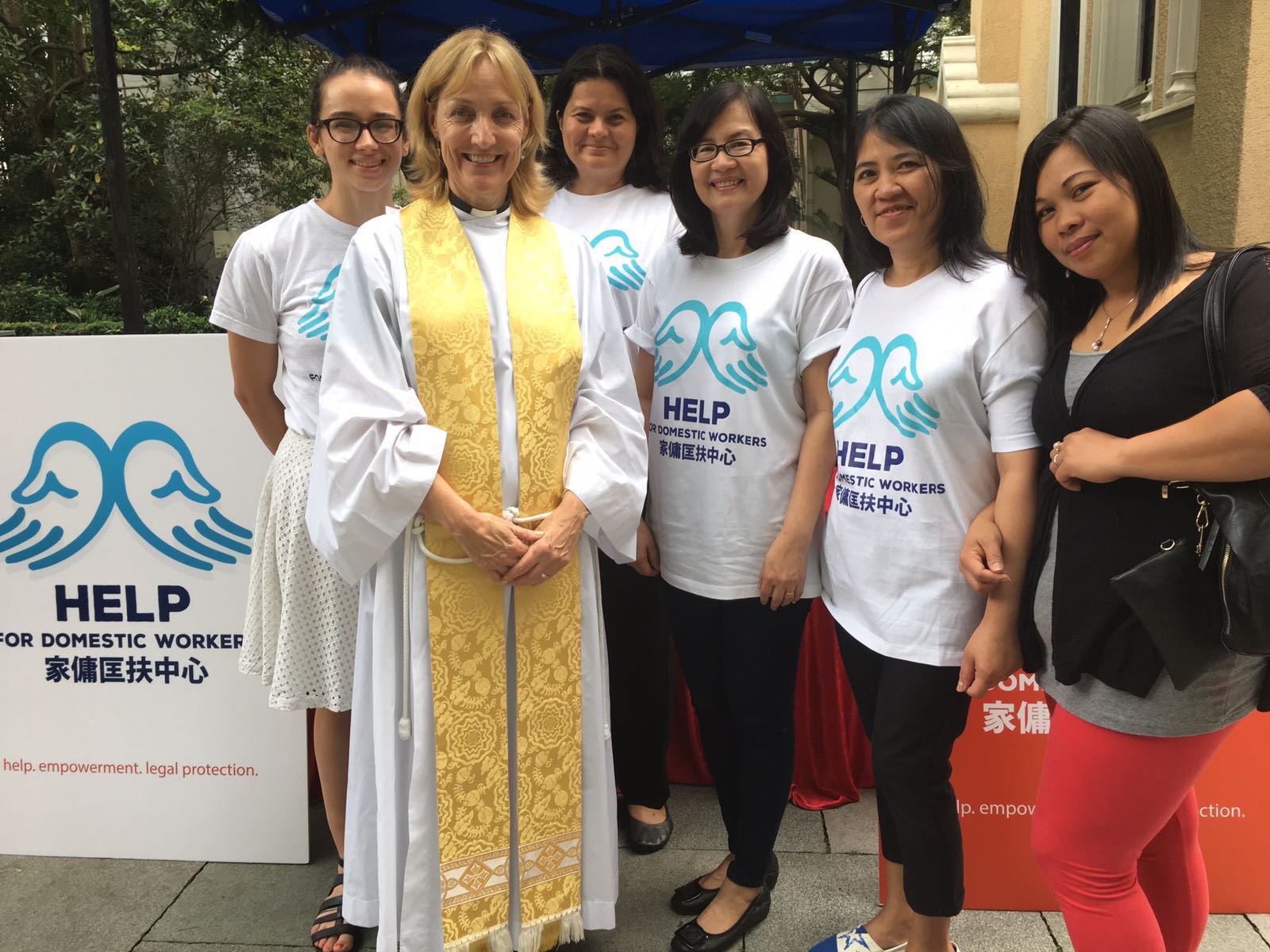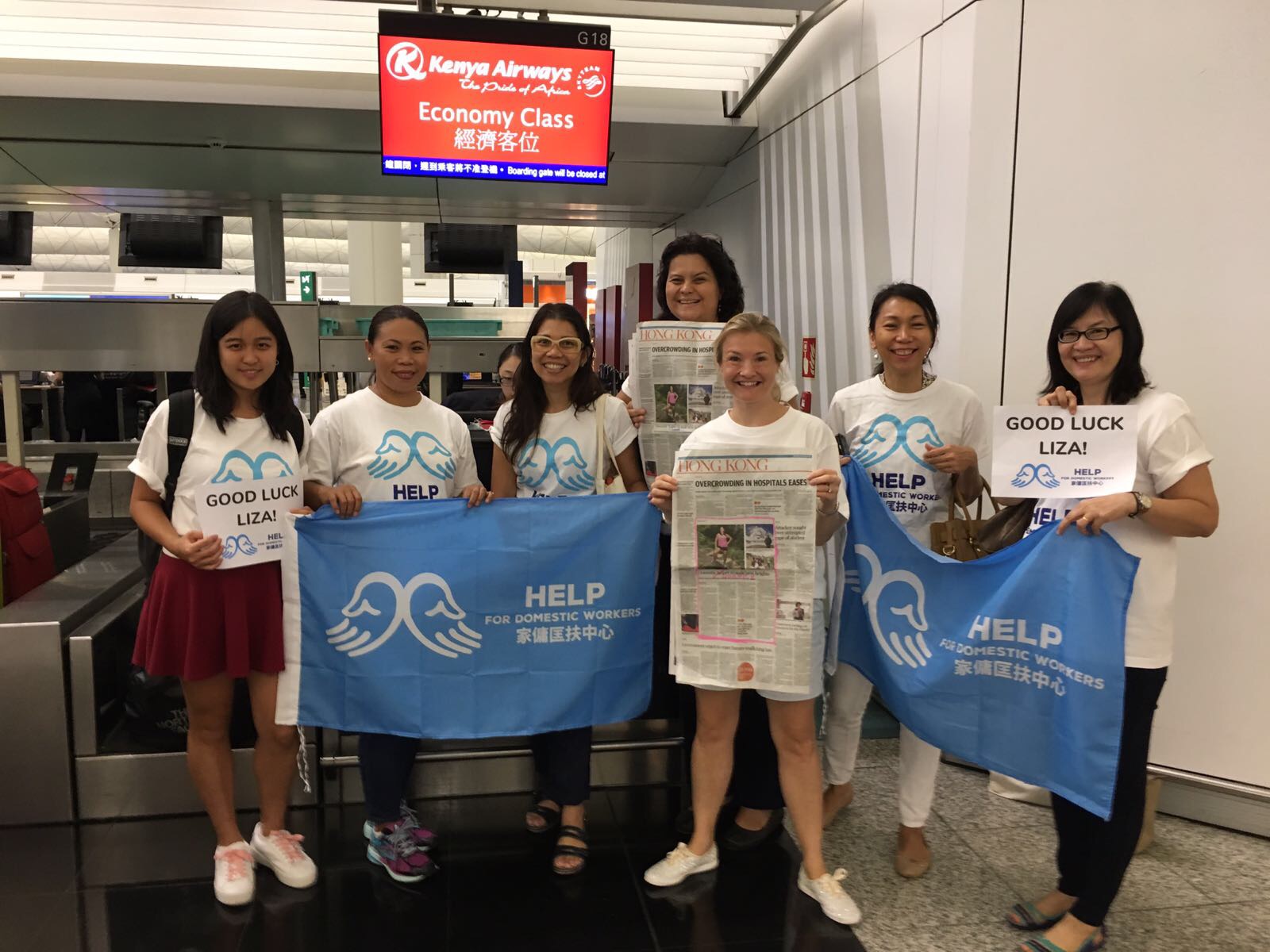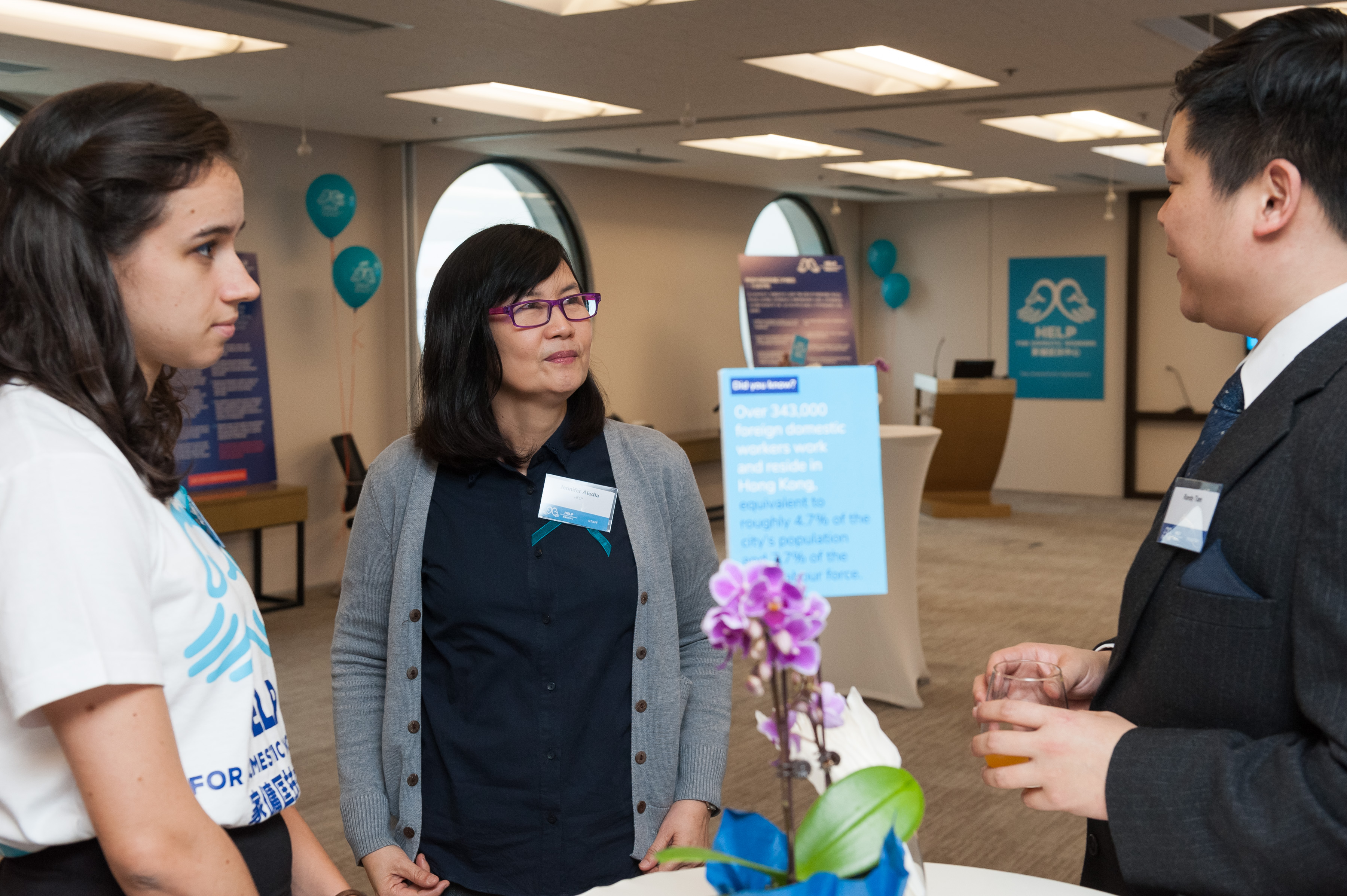Where are you from and how long have you been in Hong Kong?
I come from the Philippines. I moved to Hong Kong on the 5 September 2016, so I have been here just over a year.
Tell us about your first encounter with a domestic worker?
When I was younger, my eldest sister, who has her own family, hired a domestic worker named Bibeth to take care of her two children. Bibeth worked with my sister until the children were grown up. When Bibeth decided to marry and have her own family, she is still very close to my family and is constantly in touch with us. When I started my own family, I also hired a domestic worker from Leyte, one of the remote provinces in the Philippines. It was her first time to work away from home and she was still very young. The first time I met Leyte, she was very naïve and innocent. Literally, she was clueless about her job. I remember how me and my mother taught her how to maintain personal hygiene and how to do the house work. As she was far away from her family, we made sure she will be comfortable and happy. During Christmas and her birthday, we never failed to give her small gifts because we wanted to make her happy, as gratitude for her services to the family. We watched her transform and improve and we were so proud to say that she was once a member of our family. She is now married with two kids and visits us during special occasions.
How did you get involved with HELP?
Even before my family decided that I migrate to Hong Kong and stay with my husband, I started job hunting online. It was last September 2016 when I came across the advertisement for an assistant at HELP. What caught my attention was its name which describes the nature of its services. To appease my curiosity, I checked their website where I came across its origin, a group photo and testimonials of their clients. That time, I felt that this is such a noble organization.

Why do you feel supporting domestic workers, and HELP, is so important?
There is always an innate desire for me to help people in need. When you are faced by distressed domestic workers who are at a loss and don’t know what to do, that is when we know that we must continue to support HELP and most especially our clients. When you know that you have shared someone’s burden to make it lighter, or even cheer them up during their saddest moment, I know one way or the other, I have accomplished something, no matter how small it is.
From your work with HELP, what do you think are the most common issues domestic workers in Hong Kong are facing?
Most domestic workers are not aware of their rights under the employment ordinance of Hong Kong. It is also aggravated by lack of support from some employment agencies who should be the focal point in conciliating the differences between the employee and the employer. Another key issue is the very long working hours, coupled with lack of food and sleep which can be detrimental to the health of the domestic workers.
What’s one thing you’ve learnt about yourself/Hong Kong through your work with HELP?
Now that I am working in Hong Kong and here at HELP, I realise there is much more I need to learn. I want to learn more because I believe that in doing so, I will become more useful for the organisation.

What do you wish the public knew about domestic workers in Hong Kong?
At first, it was unbelievable that some domestic workers are going through these difficulties. A lot of people dream of working abroad. When you work overseas, you are looked upon with high regard in your country of origin. It is also a known fact that even professionals leave their jobs and apply as domestic workers because they are lured by the salary coupled with the glamour of working in Hong Kong. Essentially, they came to Hong Kong to work and make a living. They should be treated equally and allowed to enjoy their rights, free from any discrimination and oppression.
What advice do you have for domestic workers who are being mistreated?
Domestic workers should not render themselves helpless against maltreatment. They must be strong and take immediate action. Social media is so powerful nowadays that you can find ways of support and help in Hong Kong. HELP for Domestic Workers can be accessed through various platforms such as Facebook, WhatsApp, and Twitter to name a few.
What’s the best way to start a conversation with someone who doesn’t understand some of the issues domestic workers face?
If there is someone who doesn’t understand some of the issues faced by domestic workers, I usually start off by saying, “a domestic worker, not only in Hong Kong, sacrifices a lot both for herself and her loved ones just to gain financial stability and to provide what she thinks is best for her family.”
What are some of the biggest challenges you face in your role? What would make things better?
Every day at HELP is a challenge because we cannot foresee what problems will be shared by our clients. I could never imagine being in their shoes, so I think we can just ask that things will be better for them.
What do you do in your free time? Do you have a family?
During my free time, I spend it with my husband who also works here in Hong Kong. We hang out with friends, some are domestic workers also. Sometimes, we just watch movies at home. We chat with our children back in the Philippines, all of them are already grown-up. The eldest has a family of her own, so I am now a grandmother of three. My second son is already working, and the younger two are still studying. I also thank my children for encouraging me explore more opportunities here in Hong Kong, which I did not expect would happen at this time of my life.

Jennifer Aledia moved to Hong Kong from the Philippines in 2016, following a career as a public school teacher and previous roles in the restaurant industry. Jennifer feels blessed to be able to make an impact in the community on a daily basis and supports the team with her fluent Tagalog and English speaking skills. She is a mother of four and grandmother of three.

